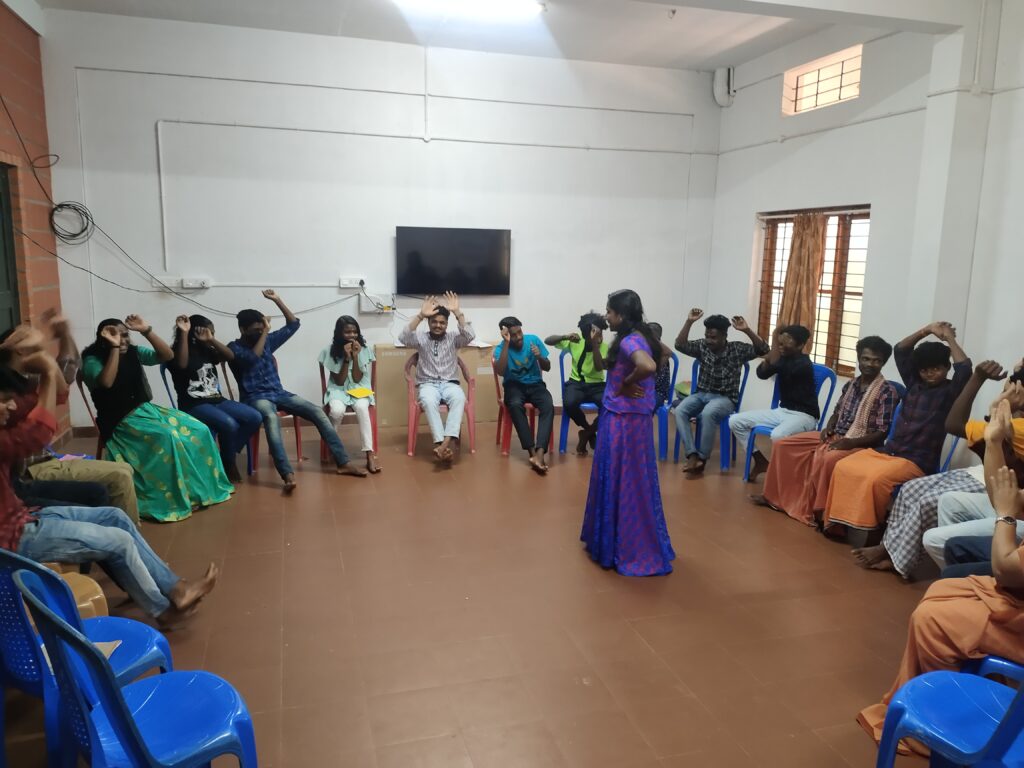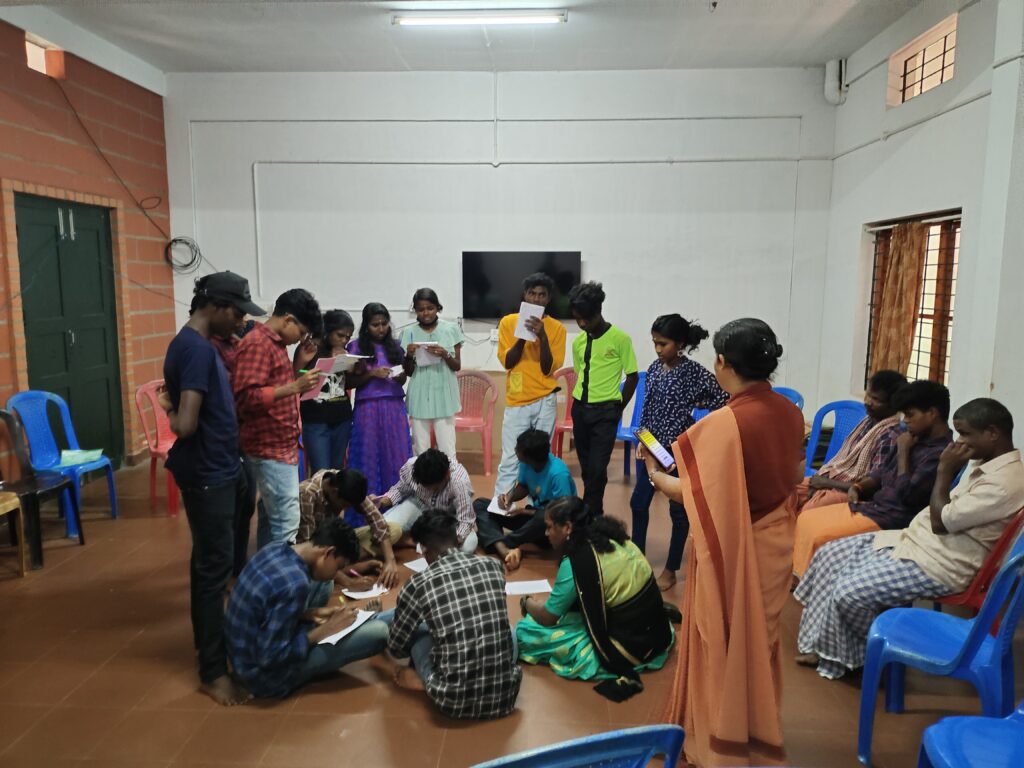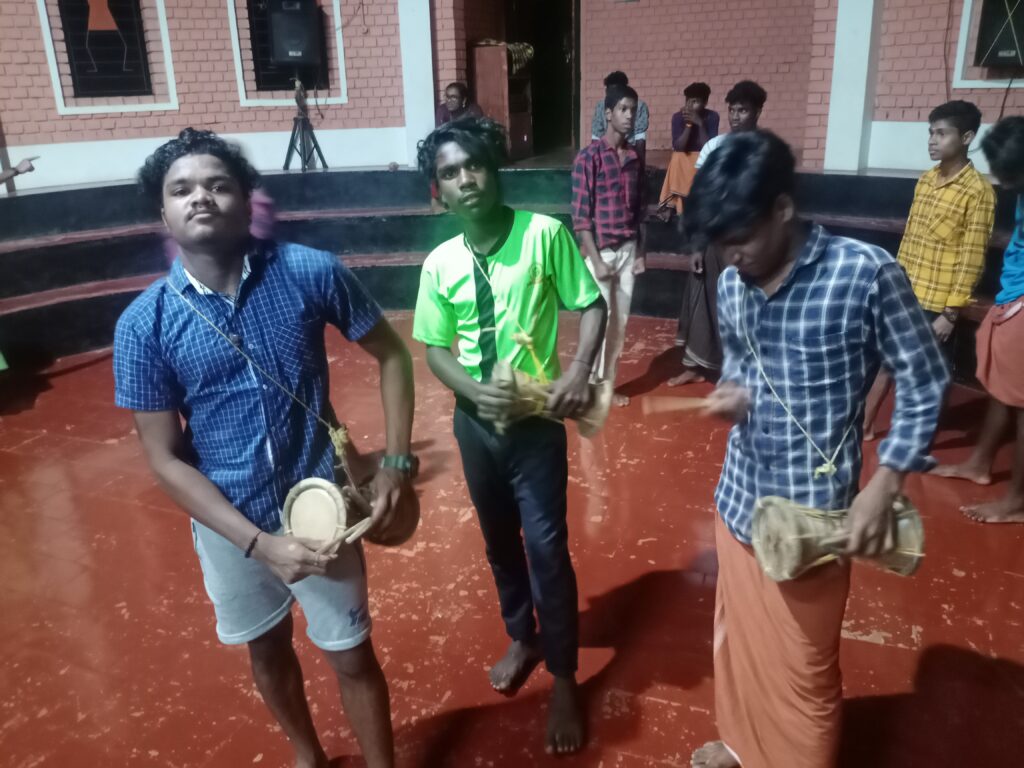


The culture and tradition of the Adivasi (Tribal) youth of Eachome at Wayanad are entirely different from the way of life of ‘civilized’ people. Wayanad is a tribal taluk in Kerala. A large number of tribals belonging to different ethnic identities, such as Paniyar, Adiyan, Kattunayakan, Kuruma, and Kurichiya reside here. Most of the tribals live in poverty and are discriminated against by dominant castes. In the recent past, the tribals have organised themselves and demanded the state address their vulnerabilities and discrimination.
During the training programme, some elders of the community shared with the trainees the discriminatory and untouchability practices that they have experienced. Experiential sharing motivated the trainees to understand the struggles of the communities and commit themselves to work towards the empowerment of the community.
Thudi is a musical instrument of the Paniya and Adiya tribes of Wayanad and is a part of their folk performances. While the wooden portion of the thudi is made of a jackfruit tree’s trunk, the skin for the drum is made of goat skin. Music is innate among the tribes and they communicate through music than language. The children show much more interest in music and dance than in studies. They also believe that the sound of thudi helps them to eradicate negative energy and generate a positive atmosphere.
The Indian social institute Bangalore accompanies the youth at Eachome to build their capacities. Mr. Karthik, Mr. Mahesh Babu, Mr. Indrajith, Manoj, Ms. K.M, Sangeetha, Ms. K.C. Vijitha and Ms. V Nivedya and many others expressed that illiteracy is a major problem of the tribals. The medium of instruction is one of the hindrances to the promotion of education among the tribe. The tribal languages, which they speak, do not have a written script. Hence, the children are obliged to learn lessons in a language which is foreign to them. Teachers from the tribal community are very less. Non-tribal teachers find it difficult to communicate. As a result, no learning takes place in the primary section. While all tribal families agree that education is basic to embrace development, the language barrier is compounded by lack of resources and poverty. The children lack motivation for higher education and are deprived of opportunities, as there is no guidance and support.
“The three-day capacity building training programme opened up a new window for them to express themselves freely. It gave them a space to explore new opportunities and potential. The participants were extremely glad that they had been selected for this programme for the first time”, observed Sr. Lilly, the State facilitator of programmes, Kerala.
The three-day Capacity building training was organized for youth from 25 to 27 September 2022, by the Indian Social Institute, Bengaluru in collaboration with Tribal Unity for Development Initiative (TUDI), Joint Voluntary Action for Legal Alternatives (JVALA), and Kumbalery Ooru Educational & Charitable Trust. 17 from Paniya, 12 from Katunayake, and 6 from Vettakurumba, a total of 35 tribal youth benefited from this training.
Sr. Lilly ED
Programme Facilitator, Kerala
